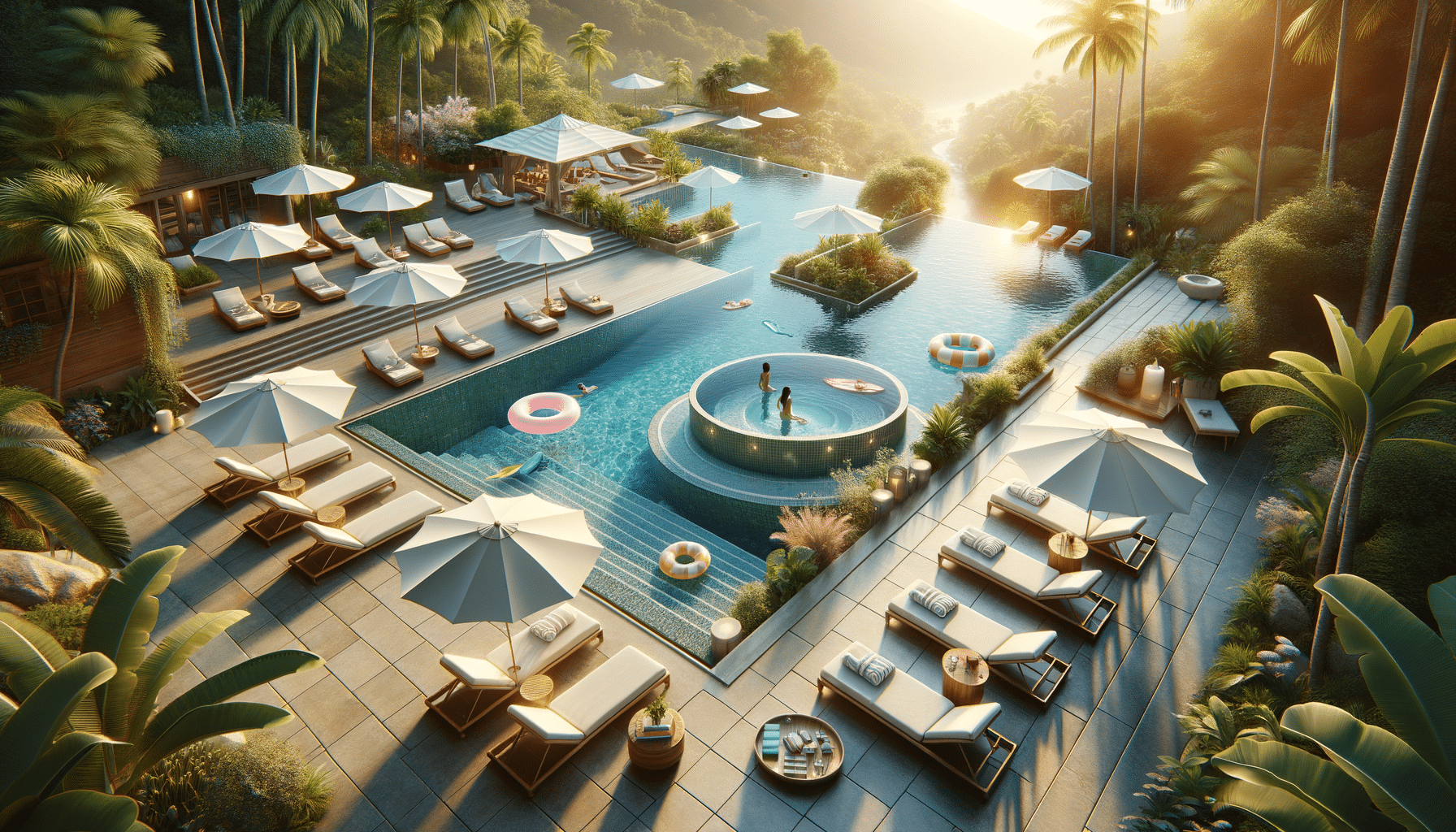
Explore the World of Outdoor Pools: A Comprehensive Guide
Introduction to Outdoor Pools
Outdoor pools are more than just a luxury; they are a gateway to a world of relaxation, exercise, and entertainment. As the summer sun beckons, an outdoor pool can become the centerpiece of your backyard, inviting you to unwind and enjoy the water’s soothing embrace. Whether you dream of hosting lively pool parties or simply desire a tranquil retreat to escape the hustle and bustle of daily life, an outdoor pool can cater to all these needs.
In recent years, the popularity of outdoor pools has surged, driven by the desire for personal wellness and leisure activities right at home. They offer a refreshing escape from the heat, a place to exercise, and a venue for social gatherings. With a variety of designs and features available, outdoor pools can be customized to fit any lifestyle and aesthetic preference, making them a versatile addition to any home.
In this guide, we’ll explore the different types of outdoor pools, their benefits, and essential considerations for installation and maintenance. Whether you’re planning to install a new pool or looking to enhance an existing one, this comprehensive guide will provide valuable insights to help you make informed decisions.
Types of Outdoor Pools
Outdoor pools come in various shapes, sizes, and materials, each offering unique advantages. Understanding the different types can help you choose the right pool for your needs and preferences.
1. **In-ground Pools**: These are the most common type of outdoor pools, known for their durability and aesthetic appeal. They can be constructed using materials like concrete, fiberglass, or vinyl. In-ground pools offer flexibility in design, allowing for custom shapes and features like waterfalls and built-in seating.
2. **Above-ground Pools**: Ideal for those on a budget, above-ground pools are easier and quicker to install than in-ground options. Made from materials such as steel or resin, they are portable and can be dismantled if needed. While they may not offer the same level of customization as in-ground pools, they are a practical choice for families looking for an affordable swimming solution.
3. **Infinity Pools**: Known for their stunning visual effect, infinity pools create the illusion of water extending to the horizon. They are often installed on properties with scenic views, offering a luxurious and modern aesthetic. However, they require careful planning and are typically more expensive to install and maintain.
4. **Natural Pools**: These eco-friendly pools use natural filtration systems, such as plants and gravel, to maintain clean water. They blend seamlessly with the surrounding landscape, offering a more organic look. Natural pools are a sustainable choice for environmentally conscious homeowners, though they may require more space and initial planning.
Benefits of Owning an Outdoor Pool
Owning an outdoor pool offers numerous benefits that extend beyond mere recreation. Here are some compelling reasons to consider adding a pool to your property:
1. **Health and Fitness**: Swimming is an excellent form of exercise, providing a full-body workout with minimal impact on the joints. Regular swimming sessions can improve cardiovascular health, build muscle strength, and enhance flexibility.
2. **Social Hub**: An outdoor pool serves as a social hub for family and friends. It provides a venue for gatherings, parties, and celebrations, fostering connections and creating lasting memories.
3. **Increased Property Value**: A well-designed outdoor pool can enhance the aesthetic appeal of your property and increase its market value. Potential buyers often view pools as desirable features, particularly in warmer climates.
4. **Relaxation and Stress Relief**: The calming effect of water is well-documented. Spending time by the pool can reduce stress and promote relaxation, offering a peaceful retreat from the demands of everyday life.
5. **Customization and Personalization**: With a wide range of design options, outdoor pools can be tailored to suit individual tastes and preferences. From elegant lap pools to playful family-friendly designs, the possibilities are endless.
Considerations for Pool Installation
Installing an outdoor pool is a significant investment that requires careful planning and consideration. Here are some important factors to keep in mind during the installation process:
1. **Budget**: Determine your budget early on, as it will influence the type of pool you can afford, as well as additional features and landscaping. Keep in mind that ongoing maintenance costs should also be factored into your budget.
2. **Location and Space**: Assess the available space in your backyard to ensure the pool fits comfortably without overwhelming the area. Consider factors such as sunlight exposure, proximity to the house, and access to utilities.
3. **Local Regulations and Permits**: Check with local authorities regarding zoning laws, building codes, and required permits. Compliance with these regulations is essential to avoid legal issues and ensure the safety of your pool.
4. **Design and Features**: Work with a professional pool designer to create a layout that complements your landscape and meets your needs. Consider features such as lighting, heating, and safety measures like fencing and alarms.
5. **Maintenance and Upkeep**: Regular maintenance is crucial to keep your pool in top condition. Plan for routine cleaning, water testing, and equipment checks to ensure a safe and enjoyable swimming environment.
Maintaining Your Outdoor Pool
Proper maintenance is key to extending the life of your outdoor pool and ensuring it remains a safe and inviting space. Here are some essential maintenance tips to keep your pool in excellent condition:
1. **Regular Cleaning**: Skim the surface of the pool daily to remove debris like leaves and insects. Vacuum the pool floor weekly to prevent dirt buildup and maintain water clarity.
2. **Water Chemistry**: Regularly test the pool water to ensure proper chemical balance. Maintaining the correct pH, chlorine, and alkalinity levels is crucial for preventing algae growth and ensuring swimmer safety.
3. **Equipment Checks**: Inspect pool equipment such as pumps, filters, and heaters regularly to ensure they are functioning properly. Address any issues promptly to prevent more significant problems down the line.
4. **Seasonal Maintenance**: Prepare your pool for seasonal changes by winterizing it in colder climates or adjusting maintenance routines during peak usage periods. This includes covering the pool, adjusting chemical levels, and storing equipment properly.
5. **Professional Assistance**: Consider hiring a professional pool service for regular maintenance and inspections. They can provide expert advice and ensure all aspects of your pool are well-maintained.


